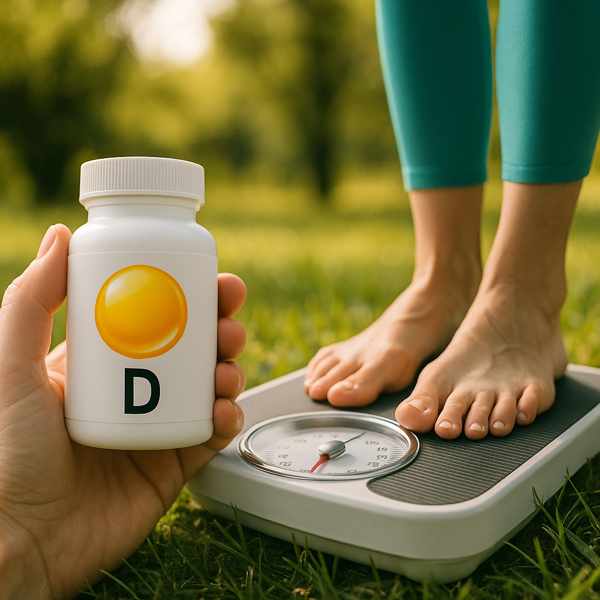
Many people ask: does vitamin D help with weight loss?
Let’s explore the science, potential benefits, and how vitamin D may — or may not — affect your weight loss journey.
Vitamin D Basics
It also comes from certain foods and supplements.
It helps with:
- Important for strong bones and teeth
- Helps defend against infections
- Linked to serotonin and depression
- Muscle function and energy
Does Vitamin D Affect Body Fat?
But the big question remains: does supplementing with vitamin D promote weight loss?
Some research suggests:
- It could help regulate how the body stores fat
- Chronic inflammation is tied to weight gain
- Helps people stay consistent with workouts
- Supports insulin sensitivity
Studies That Support the Link
- A study in 2014 found that overweight women who took vitamin D lost more fat than those who didn’t supplement.
- Another review showed vitamin D helped improve metabolic markers related to weight control.
- Some trials show no major impact on weight loss unless deficiency was corrected first.
While promising, the evidence is not yet strong enough to say vitamin D alone causes weight loss.
When Vitamin D Can Help with Fat Loss
People most likely to benefit from vitamin D supplementation include:
- Get your blood levels tested first
- Individuals with obesity or metabolic syndrome
- People with mood or energy issues
- Indoor lifestyles can contribute to deficiency
Supplementing Safely and Effectively
Ways to get more vitamin D:
- 15–20 minutes of sun per day without sunscreen
- visit Foods like salmon, egg yolks, fortified milk
- Most effective form for raising blood levels
Tips:
- Don’t overdo it
- Especially if you take other medications
- Combine with calcium and magnesium
What You Should Know
Vitamin D isn’t a magic solution for shedding pounds.
For best results:
- Eat a balanced diet
- Exercise improves fat metabolism and energy levels
- Get good sleep
- Reduce stress
So, Does Vitamin D Help with Weight Loss?
If you’re deficient, correcting your levels could lead to better energy, mood, and metabolic function.
As always, talk to your healthcare provider before starting new supplements.